DREAM
AND YOUR DREAMS WILL FALL SHORT
Pedro Casciaro
SCEPTER
London Princeton Nairobi New Delhi
This edition of Dream and your dreams will fall short is published:
in England by Scepter, 1 Leopold Road , London W5 3PB;
in the United States by Scepter Publishers Inc., PO Box 1270,
Princeton, NJ 08542; in India by Scepter, P.O. Box 4009, New Delhi 110 017; and in Kenya, by Scepter Ltd., P.O. Box 28176 , Nairobi.
This is a translation of Sonad y os quedareis cortos , first published in 1994 by Ediciones Rialp S.A., Madrid, and in 1997 by Scepter.
With ecclesiastical approval
Original Scriptor S.A., Madrid, 1991
Translation Scepter, London, 1997
This edition Scepter, London, 1997
All rights reserved. No part of this book may be reproduced, stored in a retrieval system or transmitted, in any form or by any means, electronic, mechanical, photocopying or otherwise, without the prior permission of Scepter, London.
ISBN 0 906138 44 2
CONTENTS
FOREWORD
This book describes the years Pedro Casciaro lived with Blessed Josemara Escriv, the founder of Opus Dei. Reading it myself has brought back to me numerous intimate memories. Particularly notable is his account of the period from 1935 to 1940, describing the years of faith and hope during which Blessed Josemara opened up vast horizons of sanctity and apostolate. From the very beginning, in the inter-war Madrid of under a million inhabitants, he taught his hearers to help their workmates get closer to God.
He was soon able to see the fruits of his labours, as many people began to share in the first apostolic undertakings of Opus Dei. Full of optimism, Blessed Josemara communicated to them a total trust in divine Providence, for God 'wants all men to be saved' (1 Tim 2:4) and He wishes to involve us actively in the entire unfolding of His salvific plan.
I was not an eye-witness to Opus Dei's earliest years of apostolic activity. But I do have those events engraved in my heart exactly as Blessed Josemara Escriv and his successor, Bishop Alvaro del Portillo, recounted them to me. The sudden death of the Prelate of the Work, Bishop Alvaro, which occurred when (the first Spanish edition of) this book was just about to go into print, has made my memories even more vivid. He left a wake of sanctity behind him, and his life was the most eloquent expression of the spirit which the founder of Opus Dei transmitted to all who flocked to him in those years. For instance, I cannot forget his account of those Sunday afternoons in the mid-thirties, in Madrid in the DYA Residence for students. Bishop Alvaro del Portillo was there together with Pedro and the most senior members of the Work. He heard from the lips of Blessed Josemara himself an impassioned description of how, in the future, the Work's apostolate would spread through all the five continents. In that same house on Ferraz Street their immediate plans were outlined - to start up in Valencia, then in other Spanish cities, then in Paris - though they were put back a few years by the Spanish Civil War and later, by the Second World War.
Blessed Josemara outlined an enormous field of apostolate. He was very realistic about it - his feet were firmly on the ground - but he spoke with a great awareness of supernatural realities at the same time. He encouraged them to picture it all in their imaginations and to trust in God and in supernatural means. These dreams of apostolate seemed impossible to many who knew the founder at that time. And yet, thanks to a special grace from God, they always cherished the heartfelt conviction that their dreams would indeed become reality. They were certain that if they struggled to attain sanctity every day in the midst of the world, the Lord would make them his instruments, capable of spreading, among every kind of people, the awareness that God calls us all: to the fullness of Christian life.
Pedro Casciaro's narrative makes it clear how busy our founder was with the formation of the first members of Opus Dei for this task, all the while keeping the atmosphere cheerful and free. I had the grace of being at the founder's side from the beginning of the fifties onwards; and I too was able to experience at first hand how the Father continually taught us to act from the motive which he considered most powerful as a stimulus to action: namely, a sense of responsibility at both the human and the supernatural levels.
The Father always attached great importance to initiative and responsibility, something which comes across frequently from Pedro Casciaro's story. When one is in command of one's own actions, each person acts spontaneously and according to his or her own judgement, not feeling as though forced into a strait jacket. From the very beginning, our founder's example has taught us to juggle the totally free exercise of our personal responsibility with docility to God's plans. In the spirit of Opus Dei, he used to say, we feel free and understand perfectly at the moment of obedience: because our directors ask us to do something realising that we are intelligent people, with maturity and personal responsibility, who actively put our understanding to work and our will into obeying, and who will accept the consequent responsibility for each act of obedience (Letter, 31 May 1954, 22).
Pedro Casciaro asked for admission to the Work in 1935 and lived side by side with Blessed Josemara during the difficult years of the Spanish Civil War. He brings us a vivid narrative written with a tremendous sense of humour, which highlights our founder's human and supernatural traits: his cheerfulness, simplicity, sincerity, optimism, candour, cordiality, sense of divine sonship, love for each and every person, love of freedom, and enthusiasm for all things human. The author emphasises the trust the Father always had in the members of the Work. He relied on us completely, however young we were. This trust helped us to mature more quickly and made us particularly responsible.
Although the narrative covers Pedro Casciaro's whole life, it dwells especially on the years he lived alongside Blessed Josemara. It recounts events in Madrid, during the crossing of the Pyrenees, and in Burgos. As can readily be understood, these pages are invaluable.
Today when I contemplate the immense variety of apostolate which the faithful of Opus Dei carry out all across the world, I lift up my heart in thanksgiving: for those "dreams" our founder had in the mid-thirties have today become a joyful reality in the service of the Church throughout the five continents.
I am convinced that Blessed Josemara looks down from heaven with special affection and gratitude on those first men and women who, like Pedro Casciaro and Francisco Botella (who frequently appears in this story), were completely faithful and devoted their lives in total self-giving to God's will.
I can think of the names of so many people who started Opus Dei in different countries, overcoming difficulties of every kind, and the names too of those who persevered, year after year, in the same place. Some of them already possess God in heaven, like Fr Jose Luis Muzquiz (who began the apostolate in the United States), or Fr Jose Maria Hernandez de Garnica (who opened up a path for the Work in several European nations). Both of them were ordained priests at the same time as Alvaro del Portillo, on 25 June 1944.
I was able to witness the intensity with which Bishop Alvaro del Portillo prepared for the celebration of his golden jubilee. But God knows best, and He called him into His presence three months before the day. We are left with the great consolation that he will celebrate it there with Jose Maria and Jose Luis, delighting in God and the Blessed Virgin, and in the company of our holy founder.
I turn to them as intercessors before God in my prayers for the Church, and for the members of Opus Dei to live in total fidelity to the spirit which our founder transmitted to us.
Next page
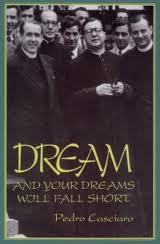
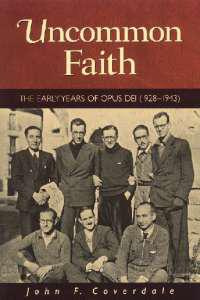
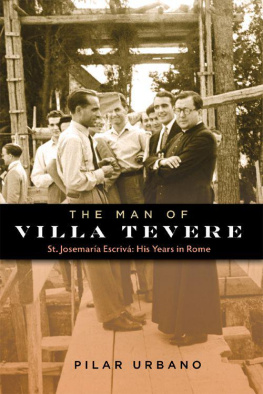
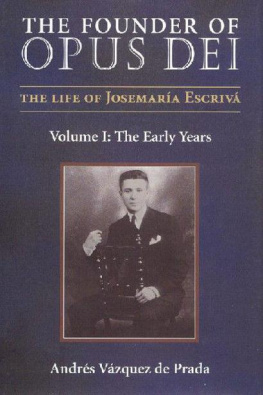
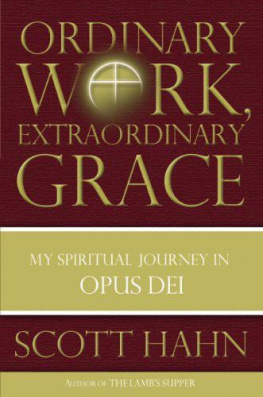
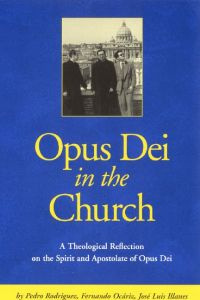
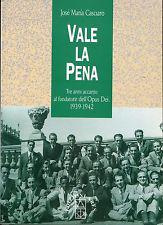
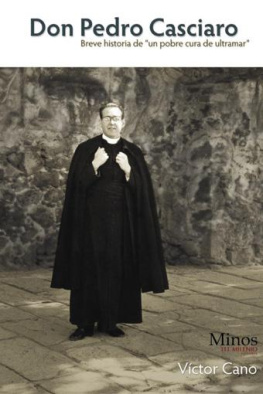
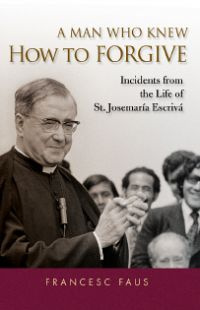
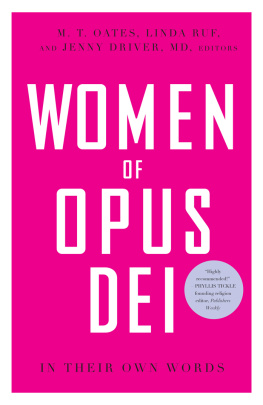


![Scott Hahn [Inconnu(e)] - Ordinary Work, Extraordinary Grace: My Spiritual Journey in Opus Dei](/uploads/posts/book/134758/thumbs/scott-hahn-inconnu-e-ordinary-work.jpg)